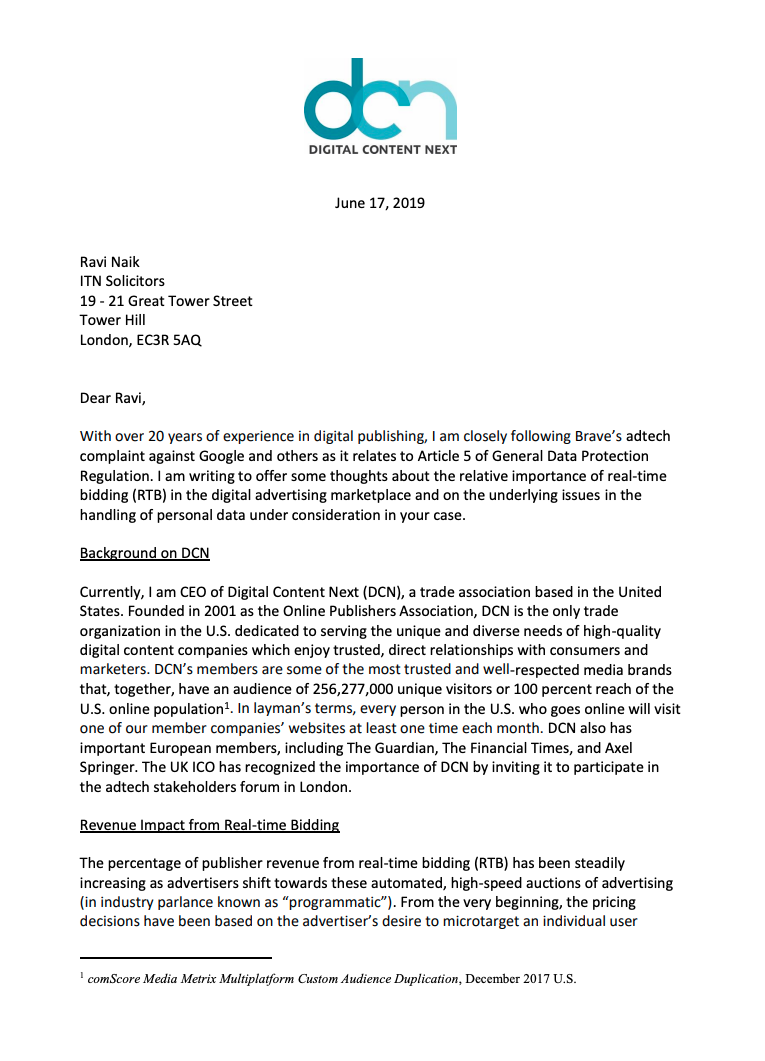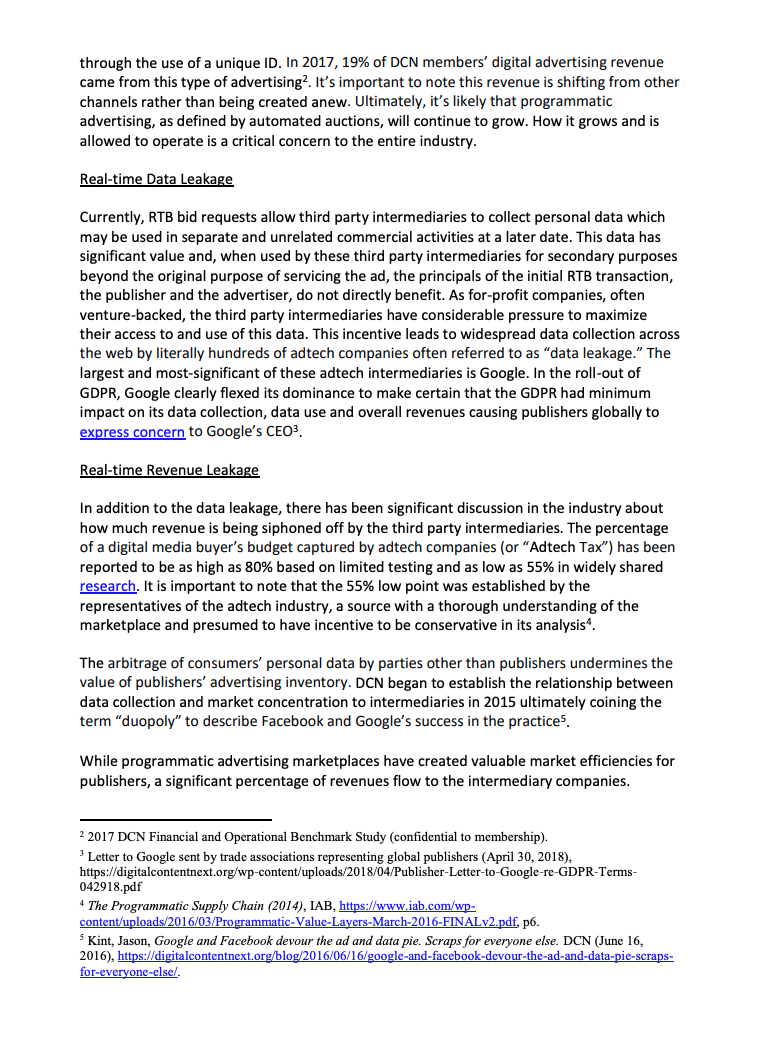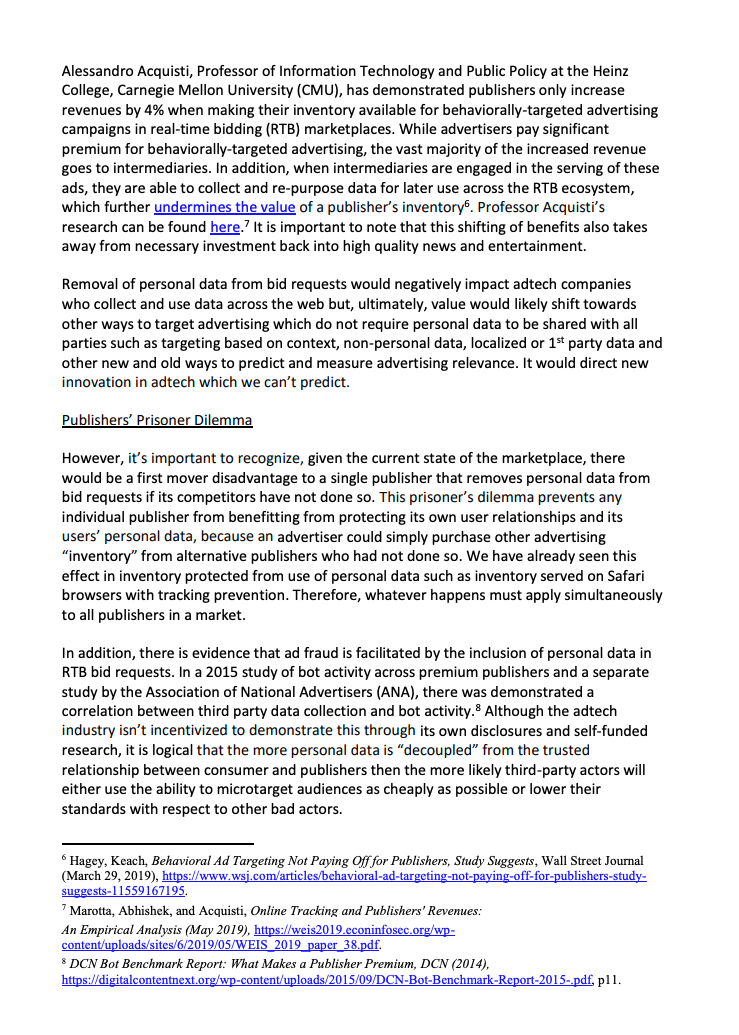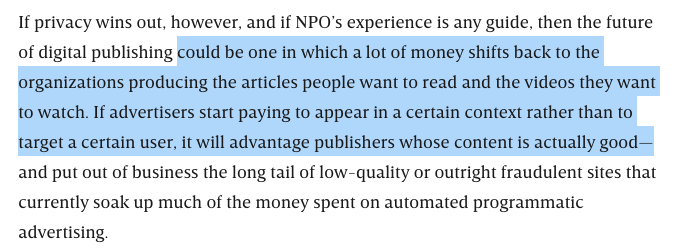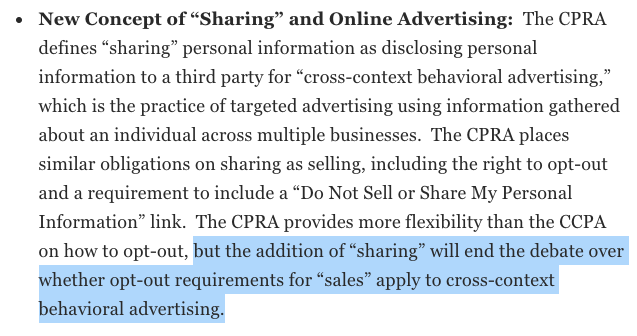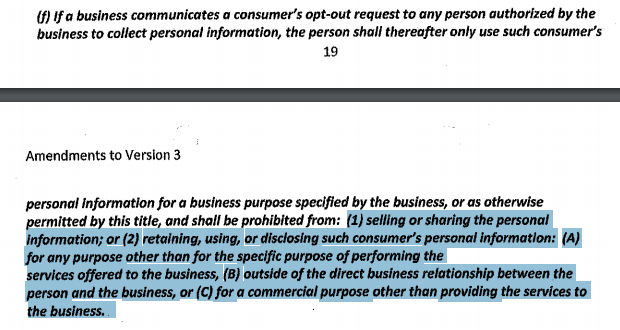If you care about future of advertising, media, journalism and downstream effects of disinformation, ad fraud, democracy harm,
this may be the most important perspective you’ll read this year. Please read and then I’ll amplify some nuance in thread. /1 https://www.wired.com/story/can-killing-cookies-save-journalism/">https://www.wired.com/story/can...
this may be the most important perspective you’ll read this year. Please read and then I’ll amplify some nuance in thread. /1 https://www.wired.com/story/can-killing-cookies-save-journalism/">https://www.wired.com/story/can...
A couple nuances, the piece points to cookies. But ultimately cookies are a technical/physical tool/proxy for tracking. In reality, there are benign uses of cookies aligning with consumer expectations by sites you actually choose to consume (eg keeping you logged in). /2
Article also sends signal this positive shift could result in revenues flowing back(wards) to contextual targeting as if it would be a reversal in market. The reality is there are a lot of ways to target beyond contextual that are privacy friendly and better for publishers. /3
Now the good stuff. Author @GiladEdelman clearly did his research as he doesn’t just float Google’s research as fact (it was quite flimsy research, sort of embarassing for Google, and competition regulators should/are asking questions about it). Narrow CPM analysis is dumb. /4
It’s also critical to understand these single publisher examples don’t scale. That’s why market-wide approaches (regulations or browsers) are critical to raise bar equally and they must tie to antitrust so Google can’t use loopholes to be the sole tracker. That’s disastrous. /5
We’ve seen that thus far with GDPR as Google merged its data harvesting, which mostly happens on other companies’ services according to @cmaukgov, into a single purpose “personalization!” and essentially forced market to continue to collect data for Google’s own monopolies. /6
It sounds like this publisher literally built its own ad server to avoid Google’s surveillance ad business. 90% of publishers use Google and they have to in order to maximize ad revenues. Market is designed in order to protect and maximize Google’s interests. Antitrust much? /7
Important point why this won’t work in US without an equally raised bar across market due to tech/regulations. “Money flows to most invasive option.” This is precisely why Safari inventory has significantly suppressed value. If G’s Chrome had Safari’s rules $ wouldn’t vanish. /8
More from @Chronotope. “If one publisher decides to turn [tracking] all off, and another publisher decides to leave it all on, and they’re not restricted by GDPR the same way that publishers in the Netherlands are, then the results are going to be different." I made this... /9
This is the exact point I made first under "Publishers’ Prisoner Dilemma" in a filing last year to push the UK competition and privacy regulators to properly enforce their laws. My full letter is here. /10
So yes, enhanced privacy laws and technical innovations, that raise bar equally, minimize FB/G& #39;s tracking to the services which consumers have choice to use, may shift revenues to where the public& #39;s trust/choice/value actually exists. @GiladEdelman absolutely nails it here. /11
this is why intersection of data and competition policy is critically important. @ProfFionasm nailed this in her Google roadmap. @davidcicilline & entire subcommittee understands this. @KenPaxtonTX @NewYorkStateAG seem focused here. German Federal Cartel office gets it, etc. /12
So I would only urge you to go deeper. it& #39;s important. if you& #39;re signing on with any old/new org propping up a faux-privacy effort advocating for changes, look around. If intermediaries with higher margins (G/FB too) b/c of access to data are in room, you may think twice. /13
A good example is new California ballot which public will vote on Nov 3. It& #39;s written by group which has worked hard to raise bar on privacy. It& #39;s intended to lock in CA law (CCPA) with "belt and suspenders" and clarity for the future. We& #39;re analyzing very closely. /14
Related to the thread above, it even more clearly calls out "cross-contextual behavioral advertising" to make it crystal clear, if it wasn& #39;t already, that Google, Facebook, others can& #39;t continue to track users for their own interests and/or $$$. /15
At risk of complete boredom, here is exact language from CPRA. It very clearly limits adtech firms (including Google and Facebook) to acting on behalf of publisher for the specific purposes for the intended services of the user. This is also consistent with GDPR so yeayy. /16
And also it makes it very clear that a dominant actor like Google can& #39;t force its surveillance needs through a "Take it or leave it" contract as they did when GDPR rolled out. This is the risk in any regulations, CRPA tries to cover this here. /17
I& #39;m sure we& #39;ll have more on this in future. Goal is to advance the future of trusted content. In this case, the economic interests of publishers also align with growing consumer trust so it& #39;s a win-win. We don& #39;t believe the duopoly, Google and Facebook, share these interests. /18

 Read on Twitter
Read on Twitter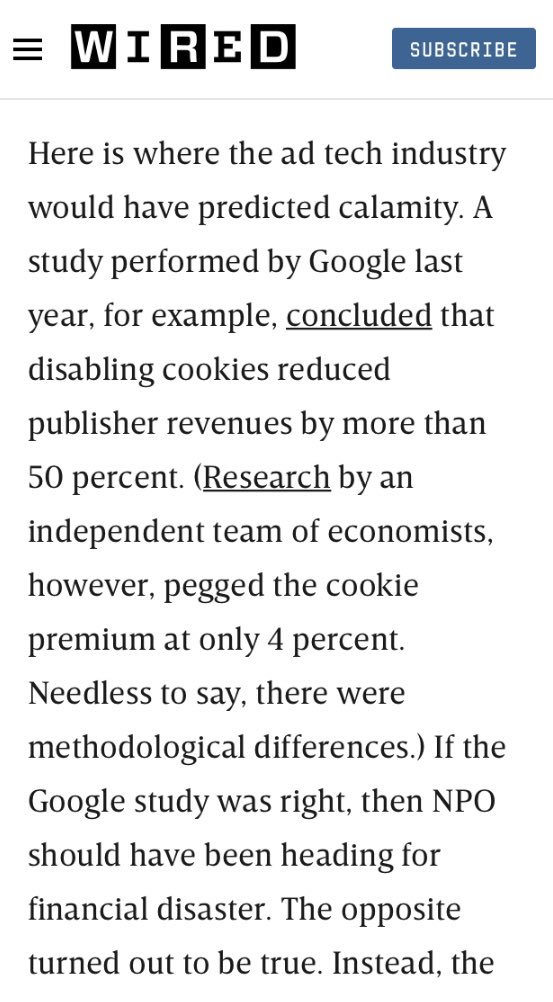
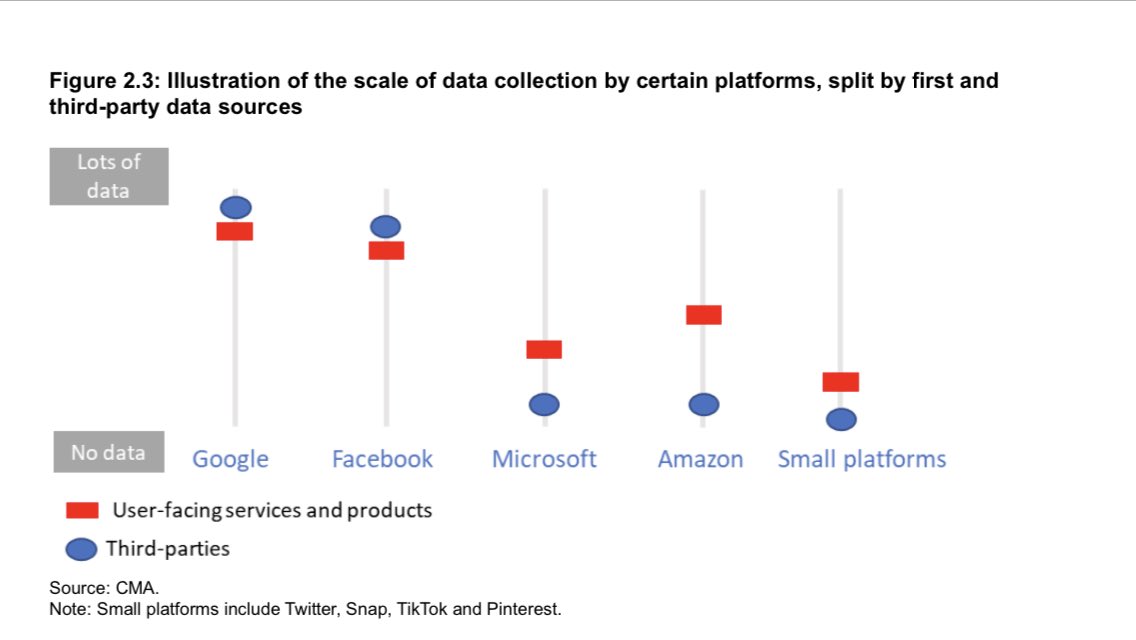
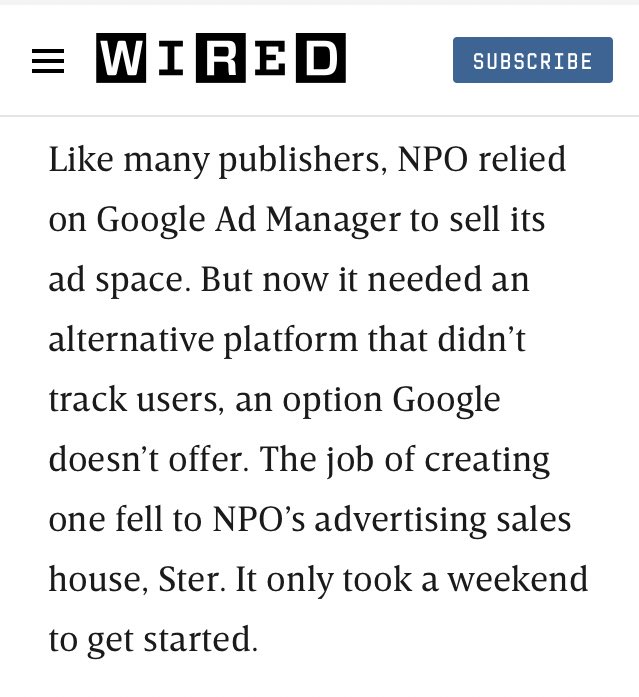
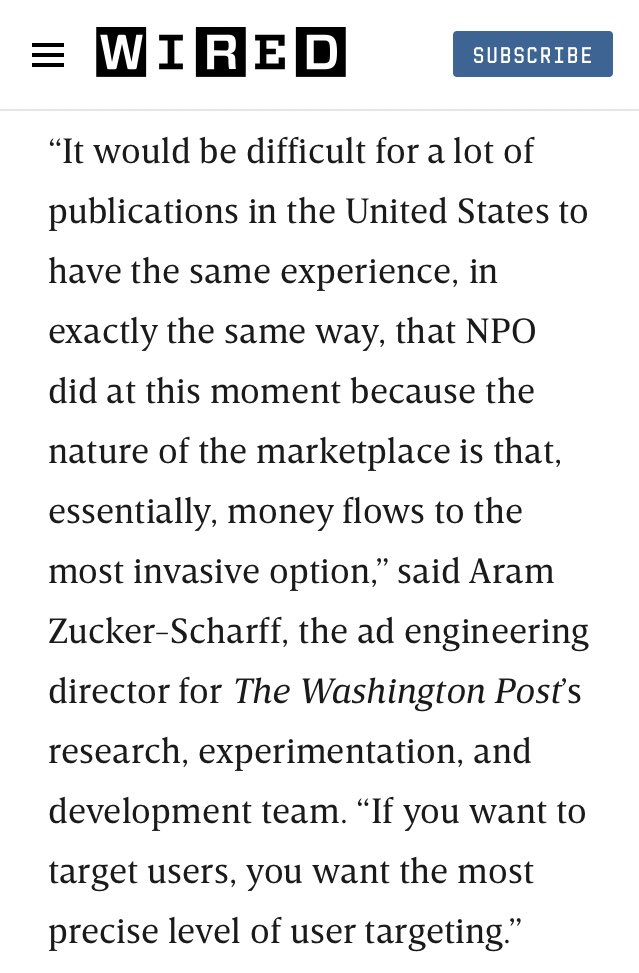
![More from @Chronotope. “If one publisher decides to turn [tracking] all off, and another publisher decides to leave it all on, and they’re not restricted by GDPR the same way that publishers in the Netherlands are, then the results are going to be different." I made this... /9 More from @Chronotope. “If one publisher decides to turn [tracking] all off, and another publisher decides to leave it all on, and they’re not restricted by GDPR the same way that publishers in the Netherlands are, then the results are going to be different." I made this... /9](https://pbs.twimg.com/media/EeqiNqMWAAY8uhy.png)
